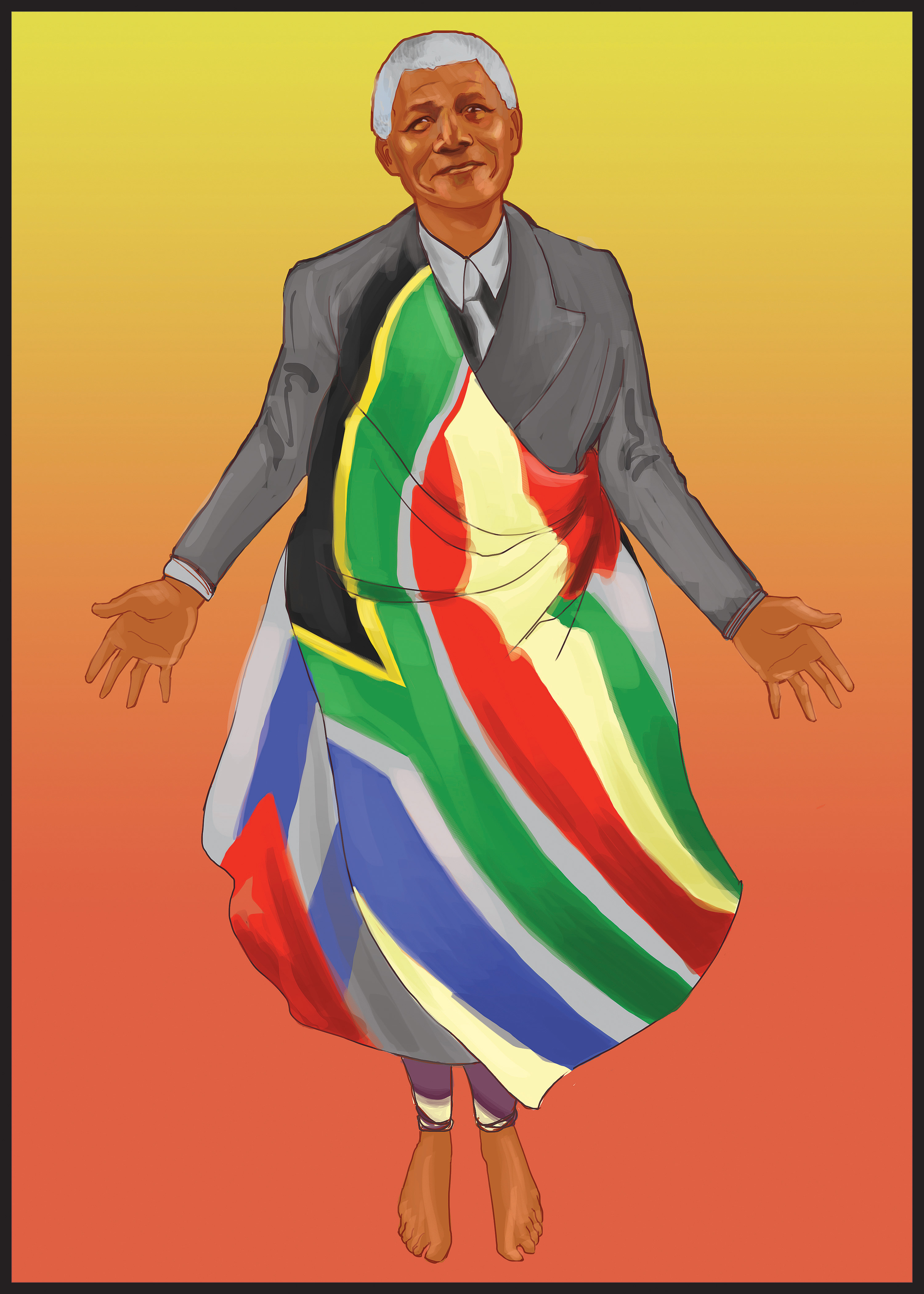Brian Latour
With the death of Nelson Mandela on Dec. 5, the world lost an interesting political figure and a powerful leader in the struggle against racism and colonialism.
Mandela was a political figure who was constantly evolving, and one who was not without contradictions. His transition from anti-colonial revolutionary to a universally respected elder statesman is one with few parallels in modern history. While he was a key leader in the struggle against apartheid in South Africa, many veterans of the struggle, such as Ronnie Kasrils, have argued that the goal of economic liberation was abandoned on the eve of the African National Congress (ANC) taking power; thus, the work of liberating the people of South Africa from oppression was never completed.
Mandela’s name carries weight in the West, where he gained a level of recognition and near-universal respect virtually unheard of for anti-colonial African revolutionaries. Yet, there are also a lot of myths about Mandela in our collective consciousness.
Mandela Myths
Especially in the West, we have an image of Mandela as a peaceful activist, who defeated apartheid purely by force of spirit rather than by force of arms. This isn’t quite true; faced with the increasing brutality of the South African apartheid state, he recognized the need for self-defence and armed struggle against oppression. Mandela was a founder of the Umkhonto we Sizwe, the armed wing of the ANC, and assisted with procuring arms from sympathetic anti-colonial leaders.
Of course, noting that his struggle was not entirely peaceful is not a criticism of Mandela. History is full of freedom fighters who took up arms against oppression, and surely those subjected to the brutality of apartheid have a right to self-defence.
Also, while Mandela is currently looked up to with nearly ubiquitous respect and reverence, there was a time when this was not the case. In fact, many leading political figures who issued sappy statements in the days following Mandela’s death, as politicians are wont to do whenever an elder statesman of such high esteem passes on, were vocally opposed to the ANC’s agenda of ending apartheid in the 1980s.
Hypocritical Eulogies?
For example, let us look at our prime minister, Stephen Harper, who, shortly after Mandela’s death, issued a statement referring to Mandela as one of the world’s “great moral leaders and statesman.” This is a far cry from the young Stephen Harper who, in the late 1980s, was a founding member of the Northern Foundation, an organization dedicated to keeping Mandela in jail and keeping white minority rule alive in South Africa.
Many other prominent figures in the conservative and neoconservative movement such as Conrad Black, Peter Worthington, and Ted Byfield were intimately associated with pro-apartheid activism.
At least Rob Anders—the Calgary MP who several years ago was the only one to vote against bestowing honorary citizenship on Mandela, and appeared to stick to his views after Mandela’s death—gets some points for consistency.
But is it possible that these political figures, who so courageously praised Mandela once he was gone and came out against apartheid only 20 years after it might have made a difference, have recognized their mistakes and turned over a new leaf? Sadly, we are seeing little in the way of genuine apologies and self-reflection from the conservatives who supported apartheid in the 80s. Not to mention that many of these figures, Harper included, are repeating their mistakes with vocal support for Israeli apartheid.
The Palestine Connection
Perhaps the most hypocritical eulogy for the late anti-apartheid leader came from Israeli Prime Minister Benjamin Netanyahu, who runs a little apartheid state of his own. While Netanyahu praised Mandela, calling him a “moral leader,” he at least had the common decency to skip the funeral. After all, I’m sure it is not lost on him that Mandela said that “our freedom is incomplete without the freedom of the Palestinians,” or that Israel was one of apartheid South Africa’s staunchest allies, even when it was quickly running out of friends on the international scene.
The irony comes in the fact that Israel practices apartheid, as defined under international law, against its Palestinian population. Palestinians in Gaza have been subjected to a long and brutal siege, and find themselves living in what is essentially an open-air prison. In the West Bank, Israel is laying the foundations for a Palestinian Bantustan, with a system of settlements, checkpoints, and Israeli-only roads that Palestinians aren’t even allowed to cross.
The other interesting connection here is the parallel between the movement against apartheid in South Africa and the movement against Israeli apartheid.
South African apartheid was, unfortunately, not met with near-universal condemnation until at least its dying days. For many years, to be against apartheid was to commit oneself to a lonely struggle, trying to raise awareness about South Africa and find ways to apply political and economic pressure to end apartheid half a world away.
Long before the Canadian government even started to (half-heartedly) criticize the apartheid regime, Canadians in churches, labour unions, and universities worked tirelessly, urging our political leaders to come out against apartheid and Canadian businesses to stop doing business with South Africa. The Boycott, Divestment and Sanctions (BDS) movement for Palestinian rights today is inspired by the global movement for a boycott of apartheid South Africa.
The current anti-apartheid movement is also subjected to many of the same attacks as its predecessor. The familiar refrain that to support Palestine is to support terrorism or religious fundamentalism echoes the claim that to oppose South Africa’s apartheid regime is to support communism.
The Israeli government’s hasbara initiatives often bear an eerie similarity to the propaganda efforts of the South African regime. Radio RSA, the South African government’s international news service, given the unenviable task of defending the indefensible, tried to play up South Africa as a progressive society interested in peace, where blacks were better off than in other African countries, and which is being unfairly singled out by anti-apartheid activists for BDS, a tactic which is futile and counterproductive anyway.
These themes are all too familiar to anyone subjected to today’s pro-Israel propaganda. It is quite ironic to see Zionists today, while claiming that Israel is not an apartheid state, inadvertently echoing pro-apartheid propaganda from the 80s.
Locally, both the Canadian Security Intelligence Service and the South African embassy engaged in espionage against the Manitoba Coalition of Organizations Against Apartheid. Two University of Manitoba students were paid by the Canadian Security Intelligence Service and the South Africans to gather intelligence on anti-apartheid activists in Manitoba and set up pro-apartheid front groups in the late 1980s. In the early 2010s, that would seem almost unnecessary; our own student union now quite openly bans anti-apartheid student groups with little opposition.
In response to Mandela’s passing, we would do well to reflect upon our place in the world and the yearning for freedom felt by many people around the world. Despite the myth of Canada as the peacemaker, Canadian foreign policy has often been motivated more by business and imperial interests than by altruism – as it was during the era when Canadian businesses continued to do business with the South African apartheid state. Not to mention the horrible treatment that the Canadian state inflicts upon its own indigenous people.
The struggle is not over until all have achieved freedom, both political and economic.




